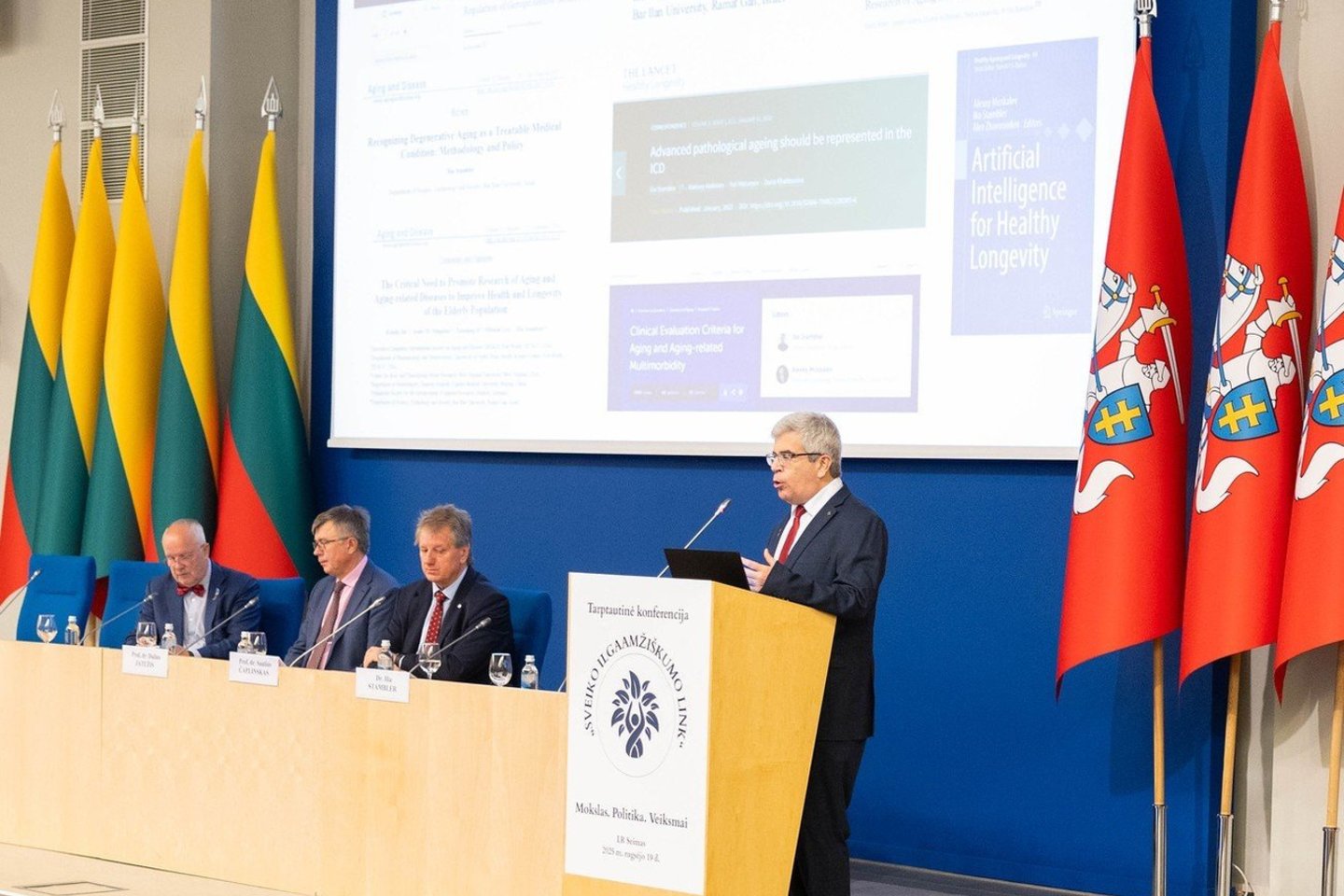At the conference, Lithuania’s Minister of Health, Marija Jakubauskienė, highlighted that the quality of health is shaped by many factors – lifestyle, personal choices, as well as social and economic policy.
„A broad collaboration is needed across different fields: environmental specialists, innovators, engineers, social policy experts, medical doctors, and public health professionals. This topic is already becoming important beyond the academic sphere – scientific knowledge about healthy longevity is increasingly becoming a political issue. If we are discussing it, it means we already have sufficient evidence on how to extend both the duration and quality of healthy life,“ said Minister of Health Jakubauskienė during the conference’s opening session.
The situation regarding longevity in Lithuania and Latvia is similar – and not particularly encouraging. In both countries, overall life expectancy stands at around 76 years, while healthy life expectancy (years lived without chronic diseases and disabilities) is just 64 years, according to the latest World Health Organisation data for 2021.
„These are among the lowest figures in the European Union and OECD countries. During the COVID period, the decline in life expectancy in Lithuania and Latvia was among the highest in the EU, 2.5 years and 2 years, respectively. This highlights the vulnerable health status of older people in both countries. At the same time, both nations face some of the fastest rates of population decline combined with population ageing, not only in the EU but also across the developed world,“ said the conference initiator, Professor Saulius Čaplinskas, MD, PhD.
Visiting Lithuania, longevity researcher and Chair of the Longevity Alliance, Dr Ilia Stambler, presented the perspective of longevity medicine, which focuses not only on treating individual diseases but also on understanding and managing their root causes – the biological processes of ageing.
„Never before has the promotion of healthy longevity received such attention and such a high level of support across the Baltic region – and indeed, throughout Northern Europe. The healthy longevity movement is gaining momentum and having an ever-greater impact,“ said the researcher, welcoming these positive developments.
The event’s moderator, communications expert and founder of the agency Comms on Duty, Laura Dabulytė, noted that although many people talk about this topic, there has been a lack of a unifying event.
„There are many people talking about longevity, but most discussions take place in small clubs or niche seminars. I am convinced that this is a topic that concerns society as a whole – yet access to information remains too limited. As one of the conference participants remarked, longevity is not simply about eating less and going for a walk. It is clear that the state has a strong interest in ensuring that change happens faster,“ she said with enthusiasm.
The conference underscored the urgent need to promote healthy longevity by strengthening research, development, and education in preventive medicine. It brought together longevity researchers, innovators, and advocates from around the world – including medical doctors, biomedical scientists, artificial intelligence specialists, and experts in healthcare and health policy.
A few side events will take place after the conference at the Seimas of the Republic of Lithuania, including a meeting entitled Longevity Science at the Bar in Vilnius on September 20 and a mini-conference on healthy longevity medicine at the Lithuanian University of Health Sciences in Kaunas on September 22.
Both conferences, in Lithuania and Latvia, and accompanying events are organised in cooperation with the International Longevity Alliance, the Vetek (Seniority) Association, the Longevity and Quality of Life Movement, and the Baltic Longevity Alliance. High-level stakeholders, including government representatives, academics, and medical practitioners, attended both conferences.
It is hoped that the conferences will encourage greater academic, public, and political engagement with these critical issues, thereby helping to create collaborative and supportive programmes that will promote the development of healthy longevity in the Baltic states and internationally.
